The content of the article
Unfortunately, in Russia the stereotype of a non-drinker has developed. If you refuse a glass of vodka in the process of a feast, there is an indispensable person who asks - "Sick or what?". But few people understand that alcohol is very harmful to the body, and especially during the treatment of other diseases. In this article we will talk about the compatibility of alcoholic beverages and antibacterial therapy. Can I drink during treatment, try to figure it out.
Consequences of taking antibiotics in combination with alcohol
Antibiotics are one of the most powerful, effective, and effective groups of drugs that have completely changed science and medicine. A few centuries ago, the average human life expectancy was about forty years, and with the introduction of antibiotics in the masses, people began to live much longer.Today, antibiotics are very controversial, many young moms talk about the horrors and consequences of frequent and prolonged use of this medication by children. Indeed, like any potent drug, antibiotics require careful attention and special rules of administration. And one of them is the refusal of alcohol at the time of treatment. Otherwise it can lead to serious consequences.
- Decreased drug concentration. As is known, the antibiotic begins to act not immediately, but only after the accumulation of a certain amount of the drug in the body. And alcohol significantly reduces the absorption of drugs in the walls of the stomach and intestines. This means that alcohol simply cancels the effect of antibacterial therapy by reducing the concentration of the drug in the body. Because of this, the medication becomes simply useless, and sometimes dangerous, because the lack of therapeutic effects leads to the fact that the disease thrives, the number of bacteria increases. In addition, small doses of antibiotic lead to the fact that harmful microorganisms develop resistance to this antibiotic, later it becomes ineffective.
- The load on the liver. Another negative consequence of the combination of alcohol with antibiotics is an extremely high load on the liver. This body is involved in the processing of ethyl alcohol and neutralizing the products of intermediate metabolism of drugs. That is, in the period of taking antibiotics, the liver works as actively as possible, in combination with alcohol intake, the load on the organ is high, sometimes the liver can fail.
- Disulfiram-like reaction. Sometimes taking alcohol with an antibiotic ends with a strong reaction in the form of nausea, vomiting, seizures, and feeling unwell. This occurs when taking certain groups of antibiotics in combination with ethanol. Often this reaction is used to encode a person from taking alcohol. A special pill is sutured into the subcutaneous space with a substance that, in equal doses, enters the body over a long period of time - several months. If during this period alcohol enters the human body, all of the above symptoms appear. A person develops a persistent dislike for alcohol.
In addition, alcohol products very much thickens the blood,leading to dehydration. How an antibiotic will behave in such conditions is a mystery, because each organism is individual. Sometimes the consequences of such a combination can be dangerous and irreversible. Therefore, drinking alcohol during antibiotic therapy is strictly prohibited. This also applies to low alcohol drinks.
How to take antibiotics
In order for the medicine to benefit, it must be taken according to certain rules. As noted, it is impossible to combine it with alcohol, you need to wait until the drug is completely removed from the body. It may take from several hours to several days after the last drug intake. Here are some more recommendations that should be followed when treating with antibiotics.
Antibiotics should be taken at regular intervals, it is very important. If the doctor prescribes injections or tablets twice a day, they should be taken strictly after 12 hours. If a threefold administration is prescribed, then antibiotics should be taken every 8 hours - for example, at 6.00, 14.00 and 22.00.
Antibiotics may not work if the resistance of bacteria to this group of drugs is high. Before starting treatment, ideally, you should pass bacteriological seeding to identify the most sensitive drug in a particular case for a given organism.
Any antibiotics should be taken only on prescription - it is not even worth talking about. Some diseases with all the symptoms may not be sensitive to antibiotic therapy, for example, viral diseases.
Before prescribing, be sure to tell your doctor that you have previously had any allergic reactions to medications. You also need to tell your doctor about medicines that you take constantly - hormonal contraceptives, blood thinners, antihistamines, etc. The combination of some drugs with antibiotics can have unintended consequences.
Antibiotics can not be taken less than 5 days, usually the course is about 7-10 days. Even if you feel better on the third day of taking the medication, you should not cancel it, otherwise the bacteria, which are not completely suppressed, will begin to multiply and attack the body again.Another consequence of the early cancellation of the antibiotic is that this strain of bacteria will become resistant to the accepted antibiotic. The next time with a similar disease, this medicine will be powerless.
Take antibiotics strictly according to the instructions, especially in combination with food. As a rule, most of the drugs in this group should be drunk after a meal, drinking plenty of water. They don’t drink the juice, coffee and milk; their effectiveness may decrease.
Antibiotics must always be combined with the reception of beneficial bacteria, because antibacterial therapy can completely kill the intestinal microflora, which leads to dysbiosis, diarrhea or diarrhea. To avoid this, you need to simultaneously drink probiotics and prebiotics.
These are the basic rules for taking antibiotics, which must be strictly followed, regardless of the group of drugs. Sometimes the doctor may not talk about these simple rules, as they should be known to everyone.
In what cases can antibiotics be combined with alcohol?
The first mentions of the dangers of alcohol during antibiotic treatment were dated in the 40s of the last century. During World War II, physicians began to actively use penicillin excreted for the first time in the treatment of broad masses.Then the patients were European soldiers who loved to drink beer. And beer, as you know, had a pronounced diuretic effect and simply washed the drug out of the body. Then the doctors decided to “scare” the soldiers and told them about the serious consequences of the combination of treatment and alcohol. People in white coats were intuitively right and even then protected their patients from problems. Take care and you yourself, do not drink alcohol during the period of treatment!
Video: is it possible to drink alcohol while taking antibiotics

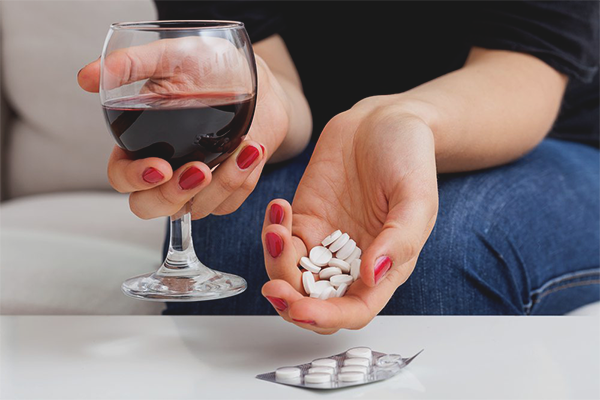

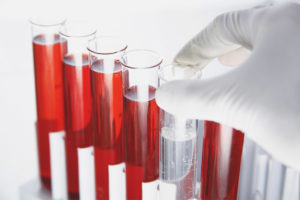
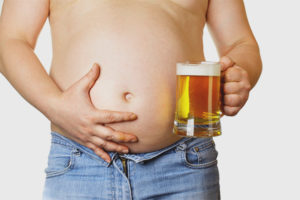
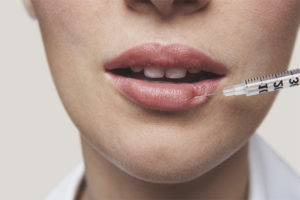
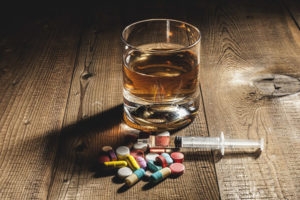
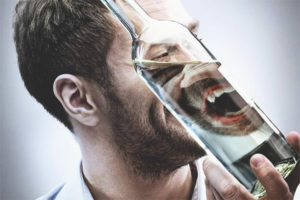
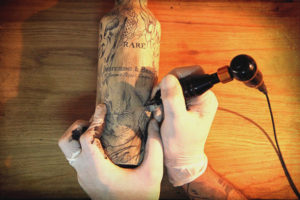
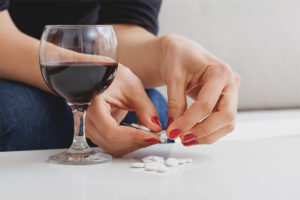
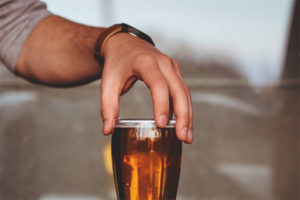
To send